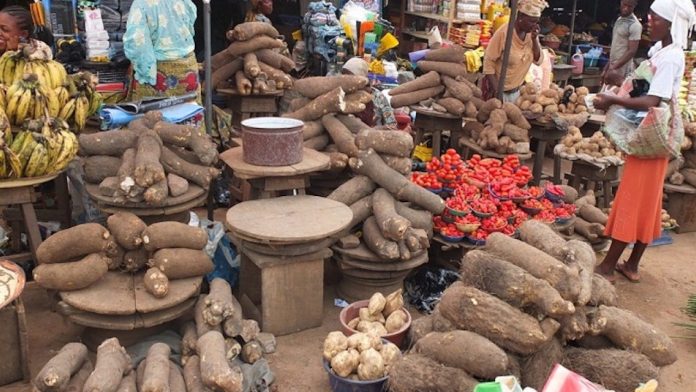For nearly two decades, the Fertilizer Producers and Suppliers Association of Nigeria has quietly led one of the most consequential revolutions in Nigeria’s agricultural space.
In a country that once struggled with fertilizer scarcity, high prices, and unchecked adulteration, FEPSAN has emerged as a game changer—one whose efforts are now feeding not just farms but also fuelling national food security.
Formed in 2004, FEPSAN brought together manufacturers, blenders, distributors, and dealers under a unified mission: to improve local production, reform policy frameworks, ensure supply chain efficiency, and advocate responsible fertilizer use that preserves both soil health and the environment.
These foundational goals laid the path for a transformation that now anchors Nigeria’s ability to grow what it eats. The turning point came in 2016 with the launch of the Presidential Fertilizer Initiative.
At the time, Nigeria was dependent on imported fertilizers, and the few operational blending plants were unable to meet demand. But today, the story reads differently.
With over 90 blending plants and three major urea production facilities spread across the country, fertilizer production capacity has soared by more than 300 per cent since 2017.
Urea giants such as Dangote, Indorama, and Notore now serve both local and export markets, boosting national self-sufficiency in agricultural inputs. The result is not just industrial progress—it is a strategic boost to food production.
“With over 90 blending plants and three major urea production facilities spread across the country, fertilizer production capacity has soared by more than 300 per cent since 2017”
By making fertilizers more available and affordable, and by promoting blends tailored to specific soils and crops, FEPSAN is helping farmers produce more with less. This has a direct bearing on food availability, pricing, and security in both rural and urban areas.
The President of FEPSAN, Sadiq Kassim, attributes these gains to strong public-private sector coordination.
FEPSAN, he notes, has become a linchpin in this transformation—coordinating stakeholders, improving supply chain transparency, and pushing for enabling policies that safeguard investments in agriculture.
The association’s leadership has not wavered, even amid challenges that would have crippled less resilient sectors. Among these challenges is the widespread adulteration of fertilizers.
Despite the enactment of the National Fertilizer Quality Control Act in 2019, enforcement remains tepid. Counterfeit products still flood the markets, undercutting the credibility of trusted brands, disempowering farmers, and threatening yields.
The Executive Secretary of FEPSAN, Gideon Nagedu warns that without stronger regulatory action, the integrity of Nigeria’s food chain could be compromised. The industry has also had to navigate global shocks.
The COVID-19 pandemic and the Russia-Ukraine conflict disrupted supply chains and spiked raw material costs by as much as 150 per cent.
Access to foreign exchange continues to hinder the importation of critical inputs like Diammonium Phosphate, DAP, and Muriate of Potash, MOP, pushing up production costs and putting pressure on end users—farmers who are already grappling with climate-related challenges.
Despite these odds, FEPSAN has laid out an ambitious vision for the future—one rooted in resilience, innovation, and food security. For the 2025 farming season, over one million metric tons of NPK blends are expected to be produced, exceeding all previous records.
This massive scale-up will significantly improve fertilizer access and double national consumption rates, ensuring that more farmers can cultivate larger, healthier harvests.
The restructuring of the PFI into a more agile entity—PFI-NPK Ltd—has made the system more responsive to local blenders. Through this, raw materials are now accessed more cost-effectively and timely, reducing delays that often jeopardise planting seasons.
Logistics and administrative costs, which once inflated prices by up to 10 per cent, have been trimmed through bulk procurement and streamlined negotiation processes. And the focus on quality continues to deepen.
FEPSAN is actively developing special, soil-specific and crop-specific fertilizer formulations in partnership with leading research institutions. These are being complemented by last-mile extension services to guide farmers on proper application, maximising yields while minimising waste.
Equally important is FEPSAN’s commitment to climate resilience. Through support for the Soil Health Card initiative and alignment with seasonal predictions from the Nigerian Meteorological Agency, NiMET, the Association is helping farmers make informed, weather-smart decisions.
These interventions are not just technical—they are lifelines for millions of smallholder farmers whose ability to grow food is under constant threat. To consolidate progress, FEPSAN is calling on the government to fully implement the Fertilizer Quality Control Act and empower regulatory agencies like the Standards Organisation of Nigeria to go after product adulterators.
Access to forex and financing must also be expanded to support local manufacturers, while current restrictions on agricultural imports should be maintained to protect homegrown industry.
Through all these efforts, FEPSAN is making a compelling case that Nigeria’s food security is not a dream deferred—it is a reality under construction.
The Association’s impact, from reviving moribund plants to orchestrating a nationwide fertilizer distribution system, is already changing the fortunes of farmers and feeding millions.
But the work is far from over. Sustaining these gains will require continued policy support, unwavering regulatory enforcement, and a dynamic embrace of innovation in production and delivery.
If these conditions are met, Nigeria will not only achieve domestic food sufficiency—it will become a fertilizer and food production powerhouse across sub-Saharan
Africa.

